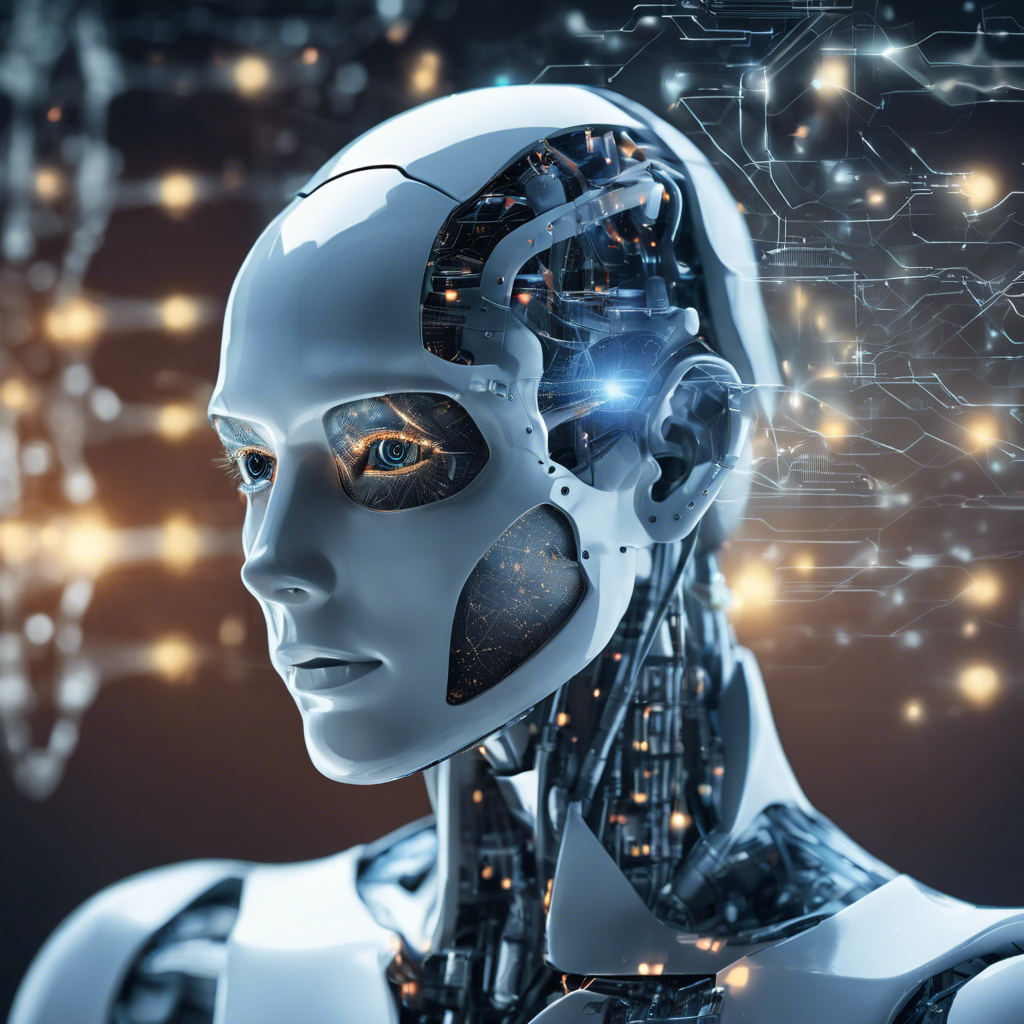The Rise of Artificial Intelligence: Transforming Industries and Shaping the Future

How AI is Revolutionizing Various Sectors and Reshaping the World
Artificial Intelligence (AI) has emerged as one of the most transformative technologies of our time. From self-driving cars to virtual assistants, AI is permeating every aspect of our lives, revolutionizing industries, and shaping the future. With its ability to process vast amounts of data, learn from patterns, and make autonomous decisions, AI is driving unprecedented advancements in fields such as healthcare, finance, manufacturing, and more. In this article, we will explore the profound impact of AI across various sectors, showcasing its potential, challenges, and ethical considerations.
1: Healthcare: Revolutionizing Diagnosis and Treatment
AI is revolutionizing the healthcare industry by improving diagnosis accuracy, enhancing patient care, and enabling personalized treatment plans. Machine learning algorithms can analyze medical images, such as X-rays and MRIs, with remarkable precision, aiding doctors in detecting diseases at an early stage. AI-powered virtual assistants are also being utilized to provide real-time patient monitoring and personalized healthcare recommendations. However, concerns regarding data privacy, bias, and the role of AI in decision-making need to be addressed to ensure ethical implementation.
2: Finance: Enhancing Efficiency and Mitigating Risks
In the financial sector, AI is transforming the way we manage money, make investments, and prevent fraud. AI algorithms can process vast amounts of financial data in real-time, enabling faster and more accurate predictions. Robo-advisors, powered by AI, are providing personalized investment advice to individuals, democratizing access to financial services. However, the increasing reliance on AI raises concerns about job displacement and the potential for algorithmic bias, which must be carefully monitored.
3: Manufacturing: Optimizing Production and Automation
AI is revolutionizing the manufacturing industry by optimizing production processes, enhancing quality control, and enabling predictive maintenance. Smart factories equipped with AI-powered robots and machines can automate repetitive tasks, leading to increased productivity and cost savings. AI algorithms can analyze sensor data to detect anomalies and predict equipment failures, allowing for proactive maintenance. However, the widespread adoption of AI in manufacturing raises concerns about job displacement and the need for reskilling the workforce.
4: Transportation: Paving the Way for Autonomous Vehicles
The advent of AI has paved the way for autonomous vehicles, promising safer and more efficient transportation systems. Self-driving cars equipped with AI algorithms can analyze real-time traffic data, make split-second decisions, and navigate complex road conditions. AI-powered logistics systems are also optimizing supply chain management, reducing delivery times, and minimizing fuel consumption. However, the ethical implications of autonomous vehicles, such as liability and safety concerns, need to be carefully addressed before widespread adoption.
5: Ethical Considerations: Balancing Progress and Responsibility
As AI continues to advance, it is crucial to address ethical considerations surrounding its implementation. Ensuring transparency and accountability in AI algorithms, addressing bias and discrimination, and safeguarding data privacy are paramount. Additionally, the impact of AI on employment and the need for reskilling the workforce should be addressed to mitigate potential societal disruptions. Policymakers, industry leaders, and researchers must collaborate to establish ethical guidelines and frameworks that promote responsible AI development.
Conclusion:
Artificial Intelligence is revolutionizing industries and reshaping the world as we know it. From healthcare to finance, manufacturing to transportation, AI is driving unprecedented advancements and transforming the way we live and work. However, as we embrace the potential of AI, it is essential to address the ethical considerations and ensure responsible implementation. By striking a balance between progress and responsibility, we can harness the power of AI to create a better future for all.

